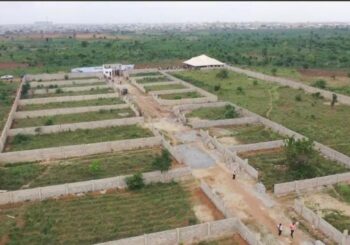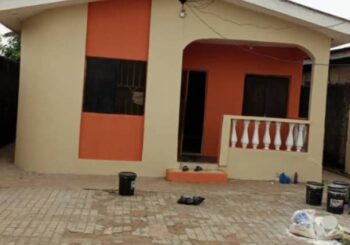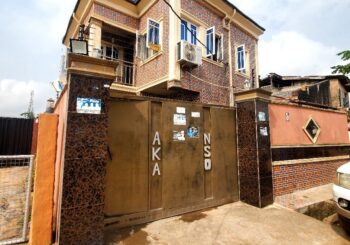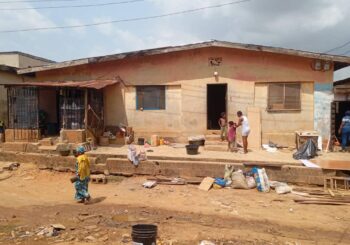See ehn, the building process, especially the design part, na pure relationship business. There was one Oga in Lekki who was building a beautiful triplex. He signed a contract with a well-known architect just because the 3D renderings were fine.
But nobody asked about supervision! After they finished the design, the architect collected his balance and disappeared. When the builder started work, he need some clarification that needed to be done on site, but there was nobody to answer! The project dragged, and the client had to pay another consultant just to manage the construction. The client learned the hard way that a fine drawing is nothing if the contract is weak and the supervision is missing.
Don’t make that mistake! Choosing your architect is the first major step to success. Here are five non-negotiable questions your client (and you, the builder) must ask before signing any paper.
What is your History in this Kind of Work as an Architect?
Your client needs assurance that the architect is not just learning on their job. Experience specific to the project type is crucial; this is about confirming their specialized competence and track record.
Clients must ask questions like, “Can you show us three completed projects that look like what we want to build? For example, if we are building a school, show us a school.” They must also confirm, “Do you have a smooth history getting permits in this particular Local Government Area (LGA)?” This is important because the rules and processes for permits can be different from place to place.
The builder knows that an architect with strong local experience in that type of construction will anticipate problems with soil, permits, and materials, which saves the builder time and trouble on site.
What are the Hidden Charges?
Many major disagreements start because the fee was not clearly defined in the contract. Clients usually assume one flat fee covers everything, but e no be so!
The goal here is to define the scope of work clearly to avoid “surprise charges.“ Clients must ask, “Does this fee cover only the Architectural drawings, or does it include Structural, M&E (Mechanical & Electrical) designs, and the Bill of Quantities (BoQ)?” They must ensure all four essential drawings are covered.
Another critical question is, “How many design revisions (changes) are included in the price? And what is the extra charge if we want to change things after that limit?” For the builder, ensure the architect is the coordinator for all the consultants (Engineer, M&E). When the professional scope is clear, the builder’s job is smoother.
When will Everything be Over?
Design work needs a solid schedule just like site work. The builder knows that late drawings will delay the foundation and frustrate the workers. The goal is simple: establishing accountability and firm deadlines. Clients need to ask for specific dates: “Give us the dates for each milestone: conceptual design, final working drawings, and submission for approval.”
They must also ask, “Based on your past experience, how long should we budget for the Local Government Approval process?” The builder understands that time is money; if the architect’s schedule is shaky, the entire project timeline will collapse. They must get the dates in writing.
What is Your Role When We Start Building? (Supervision and Involvement)
This is where the client must be sharp because a drawing is useless if the architect isn’t around to guide the execution. The goal is clarifying construction oversight and involvement.
Clients should ask, “Will you be involved in site supervision? If yes, how frequently will you visit (e.g., weekly, or only at critical stages like casting the columns)?” They must also clarify, “Is the site supervision fee already inside the contract price, or is it a separate fee we must pay?” And critically, “What is the system for the builder to get quick clarification if there’s a problem on site?” The builder knows that an active architect on site helps maintain design quality and prevents the builder from having to make critical, expensive design decisions alone.
If Things Go Wrong, How Do We Part Ways? (Dispute Clause)
Nobody starts a partnership planning to fail, but a professional contract must outline a clear exit strategy for everyone’s protection. The goal is securing a professional contingency plan.
Clients must ask, “What are the specific conditions that would allow either the client or you to end the contract?” And they need to know, “If the contract ends early, how will the intellectual property (the drawings already done) be handled, and what is the process for final payment?” The builder knows that a well-written contract protects the client’s money and the professional’s work, ensuring fair resolution if the relationship breaks down.
Final Words
Look, the most expensive house plan is the one that is wrong. If you settle for a cheap drawing just to save money at the beginning, that drawing will become the most expensive problem you have when you start site work. You will spend money correcting faulty foundations, buying extra iron, and delaying work.
A good Architect and a clear contract are your first major investment in quality. The questions listed above are your tools. Use them to ensure that the professional you hire is not just selling you a picture, but is selling you integrity, safety, and accountability. When the design and the contract are strong, the builder can execute the work faster, better, and with far less wahala. Invest wisely!
Important Disclaimer (E Get Why!)
Please note that the information provided here is for general guidance only and reflects common practices within the Nigerian construction industry. It is NOT legal advice or professional contractual advice.
- Fees: All fee ranges mentioned (like the 5% to 8% benchmark) are estimates and are subject to negotiation based on the architect’s experience, the complexity of the project, and current market conditions.
- Contract: Before signing any document, both the client and the builder must seek independent legal counsel to review the specific contract terms, fees, and dispute resolution clauses.
- Liability: myplace.ng are not responsible for any contractual disputes, financial losses, or project failures arising from the use of this information. Always verify credentials and contract terms with a licensed legal professional and registered bodies (like NIA and COREN)











Leave Your Comment